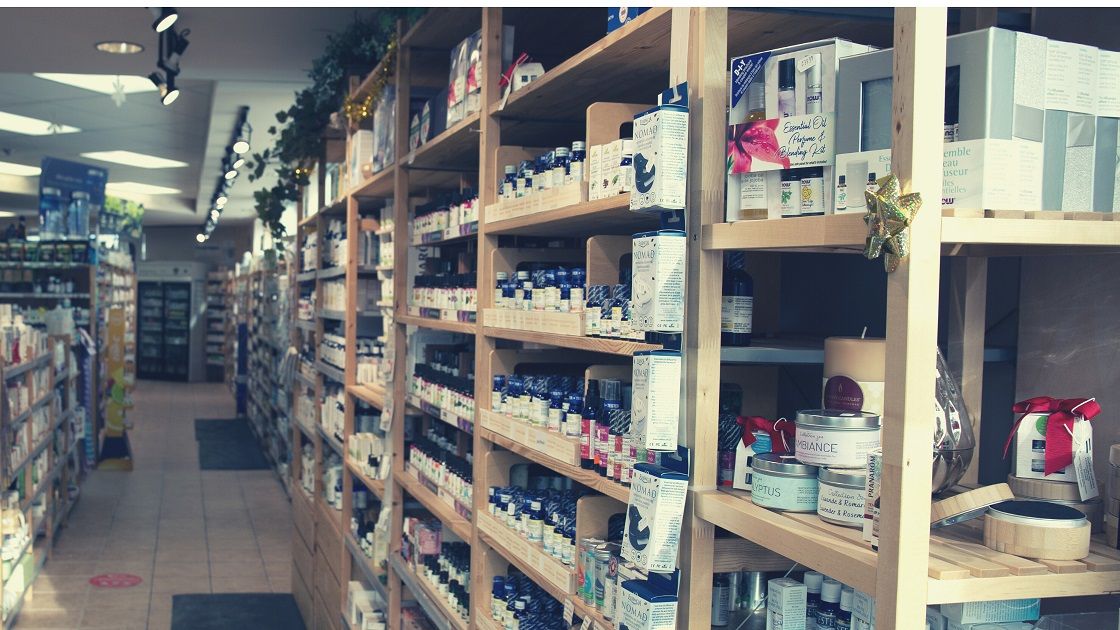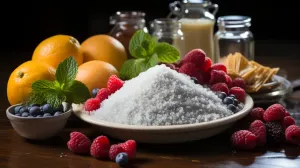Practical guide to essential oils
You want to look and feel your best. Wouldn't it be nice if you could do this without becoming a stressed and overweight person? Relaxation is essential for maintaining optimal health, but everyone has different needs. There are many lifestyle changes that can be made to improve well-being, but they will never work if life does not have the right balance of stressors, such as sun exposure or time in nature. This complete practical guide on essential oils gives you all the information you need, to help you find your way in this “ecosystem” of essential oils that are offered to you on both sides. It will allow you to choose the essential oils that best meet your needs. This book gives you all the knowledge you need to get started with aromatherapy on a platter.
What is an essential oil and what can it be used for?
Essential oils are natural, volatile and fragrant liquids that come from the distillation process of plants and / or other organic substances. They mainly come from flowers and herbs and can be found in almost any plant. Essential oils are derived from the bark, roots, flowers, and other parts of a plant. They are used in most cases to add perfume to an environment. The term "essential" means to express the essential qualities of a substance, its spirit, as explained by Paracelsus (the founder of modern medicine). In aromatherapy, it is believed that inhaling or applying certain oils to the skin allows us to stimulate physical and mental processes, improving our health by their smell alone. The properties of essential oils are numerous and they can be cited without ending. Certain essential oils can run rampant in beauty products or massage oils.
How important are essential oils?
Essential oils are one of the most popular types of natural remedies in the world today. They can be used for many purposes, including aromatherapy (the use of essential oils for therapeutic purposes), cooking, cleaning, beauty care, and personal care.
Are essential oils effective?
The science is there and the verdict is clear: essential oils work. From a strictly scientific point of view, these concentrates of active plant ingredients have been studied in depth by experts who know how to best use them for curative purposes. For example, oxidizing molecules like the 1, 8-cineole which is most often found in aromatherapy could be able to stop ENT viral infections like the flu or the common cold!
What to do with essential oil?
There are so many different ways to incorporate essential oils into your life. Essential oils can be used to improve your mood and spiritual well-being. To name just a few of the virtues: - Lavender oil for example is one of the most versatile essential oils, and it has a wide range of uses. When diffused into the air or applied topically, lavender oil can help promote relaxation in people with anxiety. Thus, it is recommended to add lavender essential oils to your bath water to relax you after a long day; Do not hesitate to apply eucalyptus or peppermint oil to the skin irritated by poison ivy or insect bites; Finally, diffuse orange blossom or jasmine oil when guests come to dinner! The list of benefits of essential oils is long, very long …
What are the different types of essential oils?
Essential oils come in three main forms: pure form (100% concentration), steam-distilled extracts (95% concentration) and absolute / CO 2 extracts (80% concentration). So there is a wide range of different types of essential oils that each have unique benefits. Among other things, there are essential oils of lemon, lavender, peppermint, bay leaf, radiated eucalyptus, ravintsara, Italian, tarragon, tea-tree (Melaleuca alternifolia), wintergreen, basil tropical, exotic basil, chamomile, tangerine, orange, chemotyped, etc.
What are edible essential oils?
If you do not see the edible label on the box and the bottle, then do not use this oil in cooking and contact the suppliers for explanations before use. On the other hand, remember that, many essential oils are edible if you respect the conditions of use, Lemon essential oil for example is used to enhance the taste of a sauce or to baste a fish, etc. Basil essential oil is great on pizza. Many people use garlic essential oil to flavor a garlic dish or other types of dishes. There are many examples of the use of essential oil for edible purposes.
What are the best essential oils for the skin and how do you use them on your skin?
Essential oils can be used on the skin to help nourish and hydrate it. You can add a few drops of an essential oil in your moisturizer, or apply a mask with clay products (in which you have mixed a few drops of essential oils), to make your scrub at home. However, not all essential oils are created to be used on all skin types. Some can be quite irritating to the skin, so it is important that you know what type of formula your product is before using it on your skin! Lavender oil for example has no side effects on the skin, but other essential oils can cause a burning sensation or redness at the point of contact. Basil, lavender, and chamomile are all great oils for skin care. Besides being soothing, they also have anti-inflammatory properties that can help reduce the redness on your face when you feel itchy! Roman chamomile was discovered by researchers in the Burns Unit at the University of Pennsylvania Hospital. Although this essential oil is expensive, we recommend that you devote a small portion of your budget for this perfect ingredient, as their benefits definitely outweigh the price tag.
Use of essential oils
Modes of use: Put essential oil on your hands or wrists, then inhale slowly or add it to bath water, mix it with Epsom salts or Dead Sea salt. Remember that the topical use of essential oils requires in most cases a dilution in a vegetable oil such as jojoba, almond, argon, avocado or olive oil, coconut, etc. Mix the essential oil with an unscented lotion, moisturizer, or cream. You can also add it to candles, incense sticks, or water vapor heaters. Many people also use it with diffusers (you will soon discover our a large file on essential oil diffusers)
Which essential oils should I choose?
We offer several different options below - each has their own advantages! We're not going to risk telling you about our most popular option. Because all our oils are well loved by our customers. It all depends on your needs. However, we consider it useful to inform you that our best sales revolve around the following essential oils: tea tree essential oil, lavender oil, ravintsara essential oil, lemon essential oil (Citrus limonum) , all useful for your relaxation. However, if you suffer from trouble sleeping, specifically try using lavender essential oil as an alternative. In our next publications, we are offering a series of blogs on the different types of essential oils, their role and how to use them.
Tips for using essential oils.
Do essential oils have any side effects?
Each essential oil is different and can have a different effect on the body at any given time; even if they are all natural oils! For example, peppermint oil is known to dry out the skin. Using this oil every day could therefore cause scaly and irritated skin in the long run (especially in cold and windy weather). However, this does not mean that people should never use peppermint again after experiencing these side effects - one just needs to be cautious when applying it too regularly or during periods of exposure, such as months of age. 'winter. Aside from these few minor points touched on above, there are no real risks associated with essential oils unless a person is allergic to a particular type of essential oil. But it must be recognized that there may be contraindications for children and babies, pregnant or breastfeeding women and certain categories of people. But it is well expected and recommended to do an allergy test before using any essential oil. A tip, to be sure that an oil is right for you, place one or two drops of the chosen essential oil on the palm of your hand and wait some time to observe the reaction. In addition, it is recommended in the event of accidental eye projection to rinse thoroughly with water.
How to choose a good quality aromatherapy essential oil?
Choosing the right essential oil can be difficult. There are so many different brands and scents to choose from. Since it is a matter of self-care, you should simply avoid buying an essential oil that would contain pesticides or that would have been tampered with or diluted. It is necessary to be vigilant on the plant species (Latin name) that is used as well as on its chemotype, because according to some sources they will not necessarily give similar properties or indications for use! 4 points to consider: how was the plant cultivated? Is it 100% natural / pure with no chemical additives added during the growing process, do I know if there are any hazardous substances used somewhere in the production line, and if so how could this affect me while applying or using? When looking for an essential oil, the best way to make sure that it has been produced without pesticides and under environmentally friendly conditions is to check the certifications.
Essential Oil Diffusers: the benefits of diffusing essential oils in your home
Essential oil diffusers are a great way to add the benefits of essential oils into your home. Whether you want to improve your mood, get rid of bad smells, or just keep things fresh and clean, diffusing essential oils around your home is a great option. Whether it's a stinky dog or a simple animal scent that won't go away, diffusing an oil like citronella is the perfect way to get rid of those smells quickly and naturally.
- How to use essential oil diffusers in aromatherapy?
There are several ways to use essential oil diffusers. You can fill them with plain water and add a few drops of your favorite essential oil to them. You can also use some type of carrier oil, like jojoba or coconut, for whatever you want to diffuse.
- What are the advantages of using diffusers?
The use of essential oil diffusers is a major asset for all households. They have many benefits, such as the ability to reduce pain in certain circumstances or to fight mosquitoes during the summer thanks to their light scent!
the use of a diffuser therefore allows:
- Mood: Diffusing oils can help improve your mood and help you relax. It's also a great way to activate the senses of appeasement!
- Odor: If an essential oil is known for its odor removing properties, you can use it with a diffuser to eliminate bad odors in your home. There are other benefits of using essential oil.
What are the different types of essential oil diffusers
There are two main types of modern essential oil diffusers: nebulized essential oil diffusers and ultrasonic essential oil diffusers.
Ultrasonic is the most expensive, but it's also more efficient, producing up to eight times more tiny droplets of scent oils per hour than an average diffusion process (a comparable model would produce only two to four. ). Nebulized essential oil diffusers work the same as basic fragrance sprays. Often recognized as the best shape of its kind, they use droplets placed near an environment to diffuse the scent. It is strongly recommended to equip them with a timer so that they do not waste any scent oils that you may have put in!
The ultrasonic essential oil diffuser is a device that uses an electric current to cause vibration to be emitted by a disc instrument, such as the sonic rod or reed plate. These electromagnetic waves then break down into tiny droplets of liquid that spread through the air like bubbles of boiling water. This transformation requires some energy, but produces an aromatic mist perfect for aromatherapy environments, as it gives off very little heat compared to other methods such as incense sticks which can produce significant heat when 'they are burnt at high temperature.
Which diffusers to buy? How to choose your diffuser?
When purchasing an essential oil diffuser, certain factors should be taken into consideration. Understanding your specific needs and preferences to make an informed choice would be an important factor in doing so. For example, nebula diffusers for dry air, humidifiers that help maintain hydration in the air, and evaporators that produce humidity. These four types of diffusers all have their advantages depending on the use you want to make of them!
To read more about essential oils in French, check out our blog!
References
Passeport santé (SD), Aromatherapy : essential oils in brief, reviewed on 25 November 2021 at https://www.passeportsante.net/portail/huiles-essentielles
Billerbeck, V.G. Essential oils and bacteria resistant to antibiotics.Phytotherapy 5, 249–253 (2007). https://doi.org/10.1007/s10298-007-0265-z
MOUAS Y. et Al. Evaluation of the antibacterial activity of the essential oil and methanolic extract of rosemary rosmarinus officinalis, [PDF file], eviewed on 26 November 2021 at https://agrobiologia.net/online/wp-content/uploads/2017/07/363-370_MOUAS_et_al.pdf




